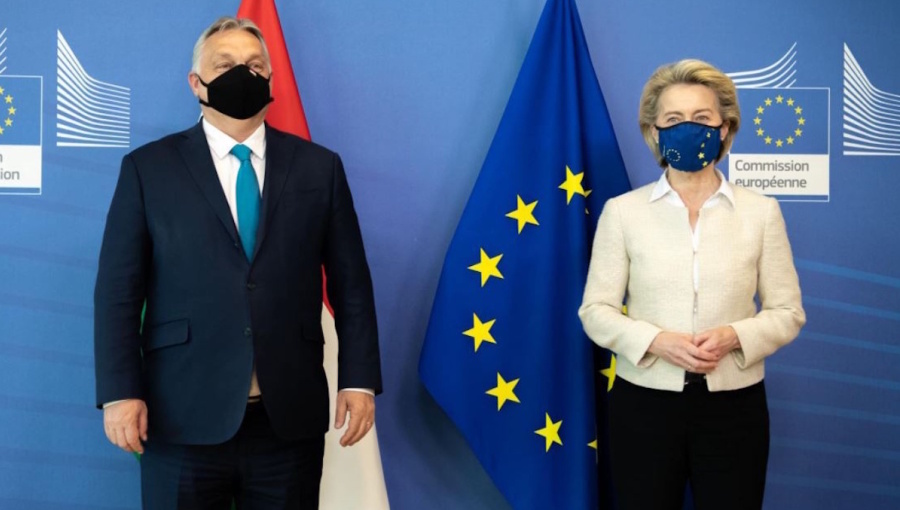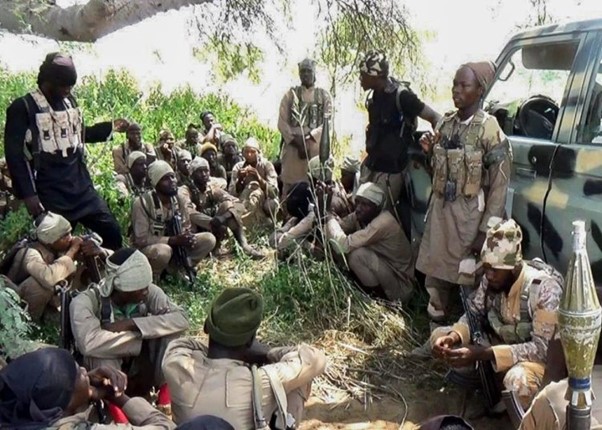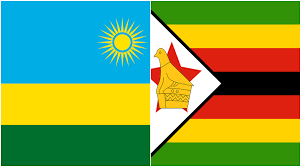Photo Courtesy bne IntelliNews
The European Union's executive body has officially informed Hungary of the launch of the rule-of-law conditionality mechanism that can suspend transfers of EU funding to Hungary.
The move demonstrates that the EU is not planning to give way on Hungary's violation of EU values, despite Prime Minister Viktor Orban's landslide victory in a flawed election at the weekend.
The prospect of Hungary losing EU funds has rattled markets. The benchmark BUX index tumbled 3.6% to 43,787 points. The forint sank nearly 2% to 376 against the euro after the news.
Talks on the disbursement of Hungary's Recovery and Resilience Facility (RRF) are still ongoing.
The Hungarian government had been given the chance to respond to concerns aired by the EC and the body had analysed its answers. The European Commission had come to the conclusion that it must take the next step, President Ursula von der Leyen said at the session of the European Parliament on April 5.
"With Hungary, we've been very clear the issue is corruption, and we have been very clear on the Article 7 procedure," von der Leyen said, referring to another mechanism earlier launched against the country that could suspend its EU voting rights.
In March, members of the European Parliament adopted a resolution giving their backing to the European Court of Justice's ruling in February that dismissed challenges by Hungary and Poland against the new rule of law conditionality regulation. The ruling allows the 27-nation bloc to suspend support payments to member states if they breach rule of law principles.
Hungary and Poland launched their cases after the EU introduced its rule of law conditionality mechanism in 2020, a regulation that links EU funds to adherence to the rule of law in the bloc.
"There are infringements also on other topics. We have been discussing with Hungary questions that are concerning the Resilience and Recovery Fund. Here the main requirement for reform is the anti-corruption question, and we are at the moment being not able to find a common ground and to conclude," Ursula von der Leyden added.
Hungary has requested €7.2bn in funding from the EU’s recovery fund, but Brussels has yet to approve the country’s plan and kept the money back, citing the lack of transparency in public procurements and the risk of corruption. Based on Hungary’s 2020 and 2021 economic performance, the final amount of RRF funds, if approved by the Commission, would come to €5.9bn.
Two weeks before the election, Hungarian Prime Minister Vikor Orban asked for RRF's loan facility, citing the adverse impact of the Ukraine war on the economy, the refugee crisis, and sanctions.
The government turned down the €9bn loan last year, but was forced to make a U-turn on the question as Hungary’s economy is facing the fallout of a massive pre-election spending spree and the slowdown caused by the war.
Weeks before the outbreak of the war, the government had calculated a budget adjustment of around HUF2 trillion (€5.4bn) over two years, of which HUF500bn-700bn would have come from EU funds. The government turned to the EU for help funding the pay rise of teachers. This would be unprecedented, as the EU has never disbursed funds to member countries to finance pay hikes in the public sector.
The Commission has signalled that it is willing to be flexible in providing assistance to Hungary to manage the influx of refugees from Ukraine. Budapest is expected to receive some €400mn from the REACT-EU fund soon.
The launch of the rule-of-law mechanism came just two days after the landslide victory of the ruling Fidesz party, which won 54% of the vote and got 68% of the seats, securing the fourth straight supermajority.
In his victory speech, a jubilant Orban told his supporters that Fidesz had to overcome in the campaign the left at home, the international left, the bureaucrats in Brussels, the money of the Soros empire, but he also named Ukrainian President Volodymyr Zelenskyy.
Brussels is "singing the same old song" as the Hungarian leftwing, Gergely Gulyas, the head of the Prime Minister's Office responded to the decision, calling for the European Commission to "return to its senses and to dialogue".
"Don't punish Hungarian voters because they've expressed an opinion in the election and on the matter of the child protection act that Brussels doesn't like," Gulyas said.
The anti-LGBT referendum on Sunday was invalid as less than 50% of eligible voters cast ballots. The referendum was a vote on child protection laws, but critics say the questions amounted to discrimination against the LGBT community. Contrary to what the government said, the European Commission has denied that the legislation played any part in withholding EU funds.
The opposition parties concurred that the controversial legislation was approved with the sole purpose of diverting attention from the rampant corruption and serious backsliding of democratic values. Source: bneIntelliNews








